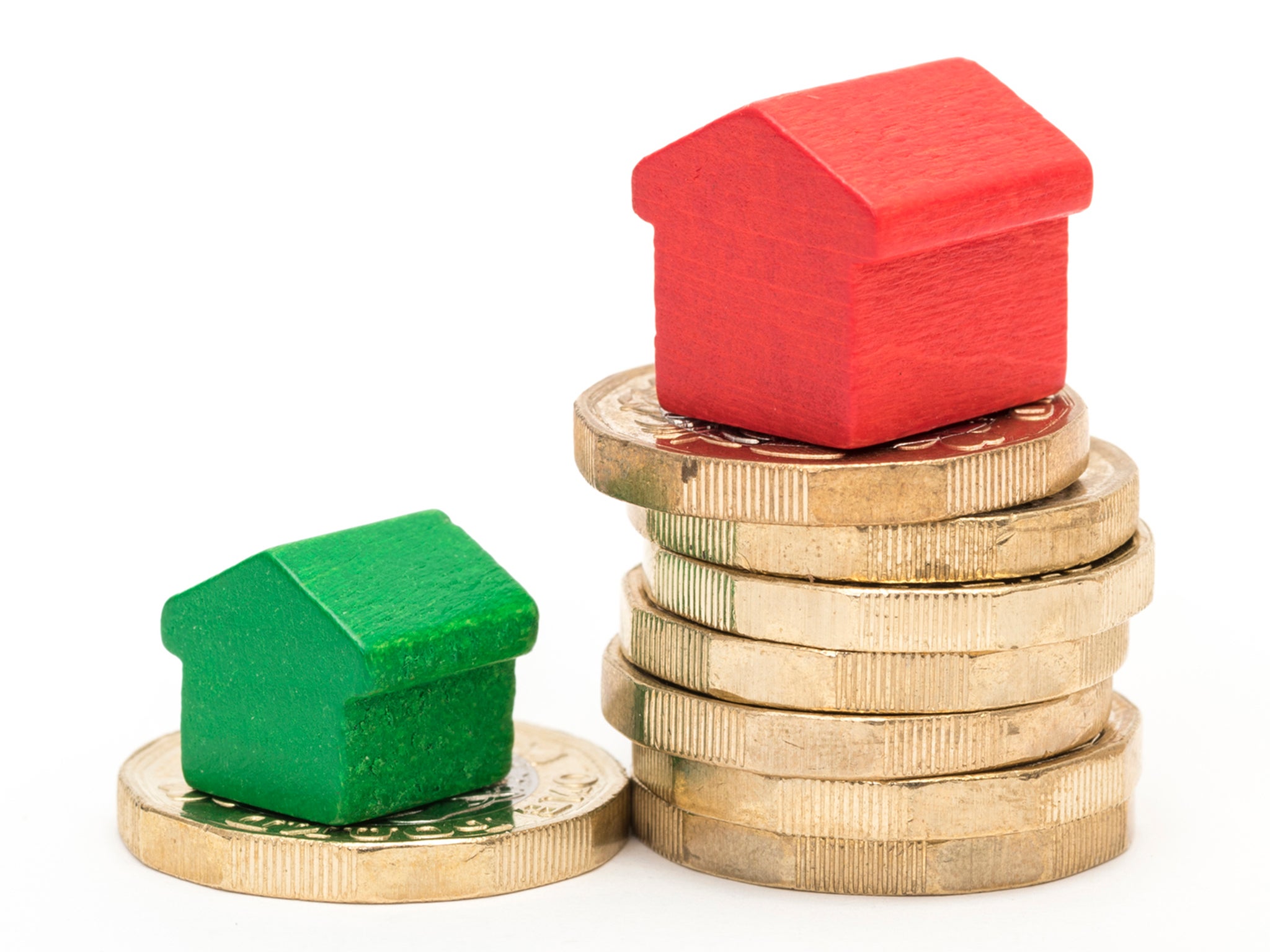How to beat record high mortgage fees
Borrowing costs hit five-year high as lenders seek profits in low interest world

Your support helps us to tell the story
From reproductive rights to climate change to Big Tech, The Independent is on the ground when the story is developing. Whether it's investigating the financials of Elon Musk's pro-Trump PAC or producing our latest documentary, 'The A Word', which shines a light on the American women fighting for reproductive rights, we know how important it is to parse out the facts from the messaging.
At such a critical moment in US history, we need reporters on the ground. Your donation allows us to keep sending journalists to speak to both sides of the story.
The Independent is trusted by Americans across the entire political spectrum. And unlike many other quality news outlets, we choose not to lock Americans out of our reporting and analysis with paywalls. We believe quality journalism should be available to everyone, paid for by those who can afford it.
Your support makes all the difference.Mortgage lenders are locked in a battle for new customers, tempting them with low interest rates.
It sounds like a win-win for homeowners, and the Bank of England base rate rise earlier this year spurred an avalanche of homeowners into remortgaging to escape higher standard variable rates or fixing their way out of painful future increases.
But research from the website Moneyfacts.co.uk shows that, while many lenders are cutting their headline rates, the mortgage arrangement fees that come with these deals are soaring.
The average mortgage fee currently stands at £1,005, according to the site, which is the highest it has been since July 2013.
“Despite the Bank of England increasing the base rate twice since November 2017 – from 0.25 per cent to the current rate of 0.75 per cent – mortgage rates are still far lower than providers’ costs,” says Charlotte Nelson, spokesperson for Moneyfacts.co.uk.
“The average two-year fixed rate only stands 0.16 per cent higher than it did in November 2017, increasing from 2.33 per cent to 2.49 per cent. By increasing fees, providers are making a small attempt to recoup some of this extra cost.”
Daniel Hegarty, founder of online mortgage broker Habito, says: “The lowest interest rates and seemingly cheapest deals are used by banks and lenders to market to customers, but they typically have larger fees, some over £1,000, which increase the overall price of the mortgage.”
Unfortunately for borrowers, high fees and low rates can simply muddy the waters further when it comes to finding the best deal. After all, for homeowners and first-time buyers who need to borrow larger sums then a low rate/high fee offer could be more competitive than a deal that has a higher rate but no fee at all.
But for borrowers who need to borrow less, a high fee can end up costing more than the low rate will save them over the term of the mortgage.
Hegarty adds: “It is better to look at the total cost – taking into account any associated fees and special offers, as well as the rate, to get the cheapest deal overall.”
Finding the best deal
But it can be hard to assess the entire cost of some deals, particularly if they come stacked with freebies.
“Many mortgage products now come with free valuations, no legal fees, the promise of cash back and more. But these usually come with higher interest rates – so can still work out as more expensive overall compared to a product that has a lower rate but higher fees and no free services or cash-back rewards,” Hegarty warns.
“Be savvy and look at the cost of legal fees versus cash-back offers to see which is the bigger incentive. With some cashback products paying as much as £500, you could be better off taking the money and still spending on associated fees.”
Nelson says: “As providers start to diversify into different sectors and types of products, the arrangement fee element of the deal allows them greater flexibility on not just the rates they offer, but the incentives they add as well.
“However, with all these extra elements, borrowers must be careful to pick the right product when choosing a mortgage.”
One real risk is that the complexity of working out which deal is best will put potential remortgagers off moving. Delaying switching to a better deal and languishing on your lender’s standard variable rate can mean spending more unnecessarily.
Hegarty adds: “It can take time to switch on to a new mortgage rate so you should start looking roughly 14 weeks to three months before your current rate expires. Planning ahead will save you being automatically transferred onto a more expensive variable rate mortgage.
“Likewise, if you switch too soon, some mortgage products will include an early repayment charge. This charge can be as much as 5 per cent of your outstanding loan, which can add up to several thousand pounds. If there is a charge, arrange for the remortgage to start the day after the penalty period ends on your current deal.”
Slowing showing
The number of customers remortgaging has started to slow, according to the latest data from UK Finance. But that could mean banks are even more keen to attract those who choose to do so.
According to the industry body, the number of mortgages approved by the main high street banks in September was 9 per cent lower than last September.
That will mean lenders could end up competing even harder to attract remortgagers, throwing in cashback and low rates and freebies and potentially offsetting them with high fees.
Nelson concludes: “For the average borrower who remortgages every two years, the fees can soon add up. The additional cash could be far better spent overpaying the mortgage.”
Join our commenting forum
Join thought-provoking conversations, follow other Independent readers and see their replies
Comments